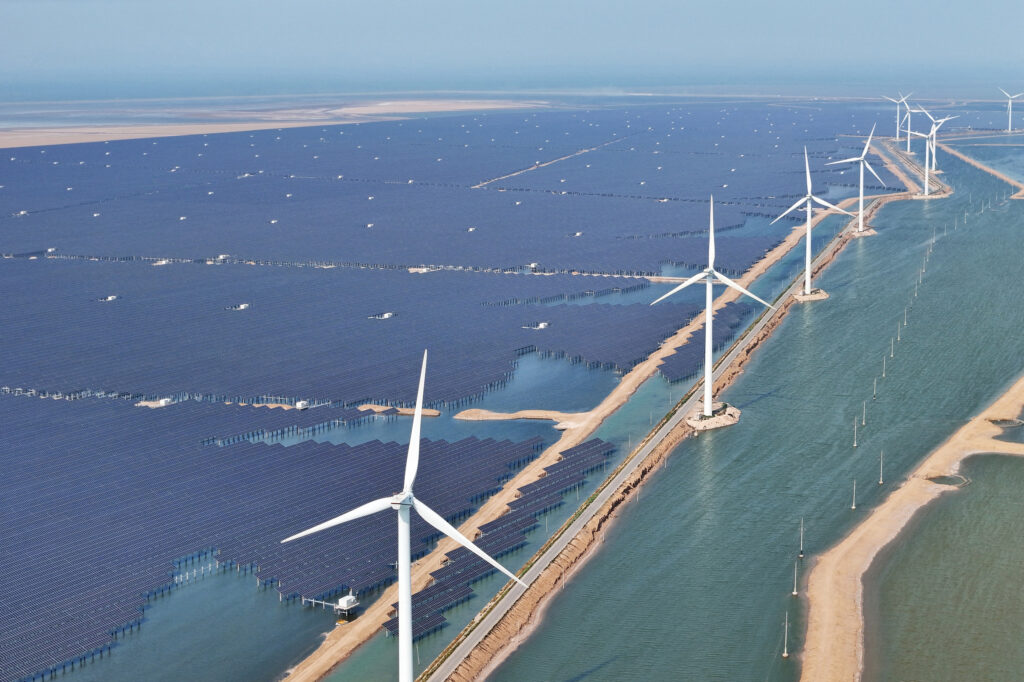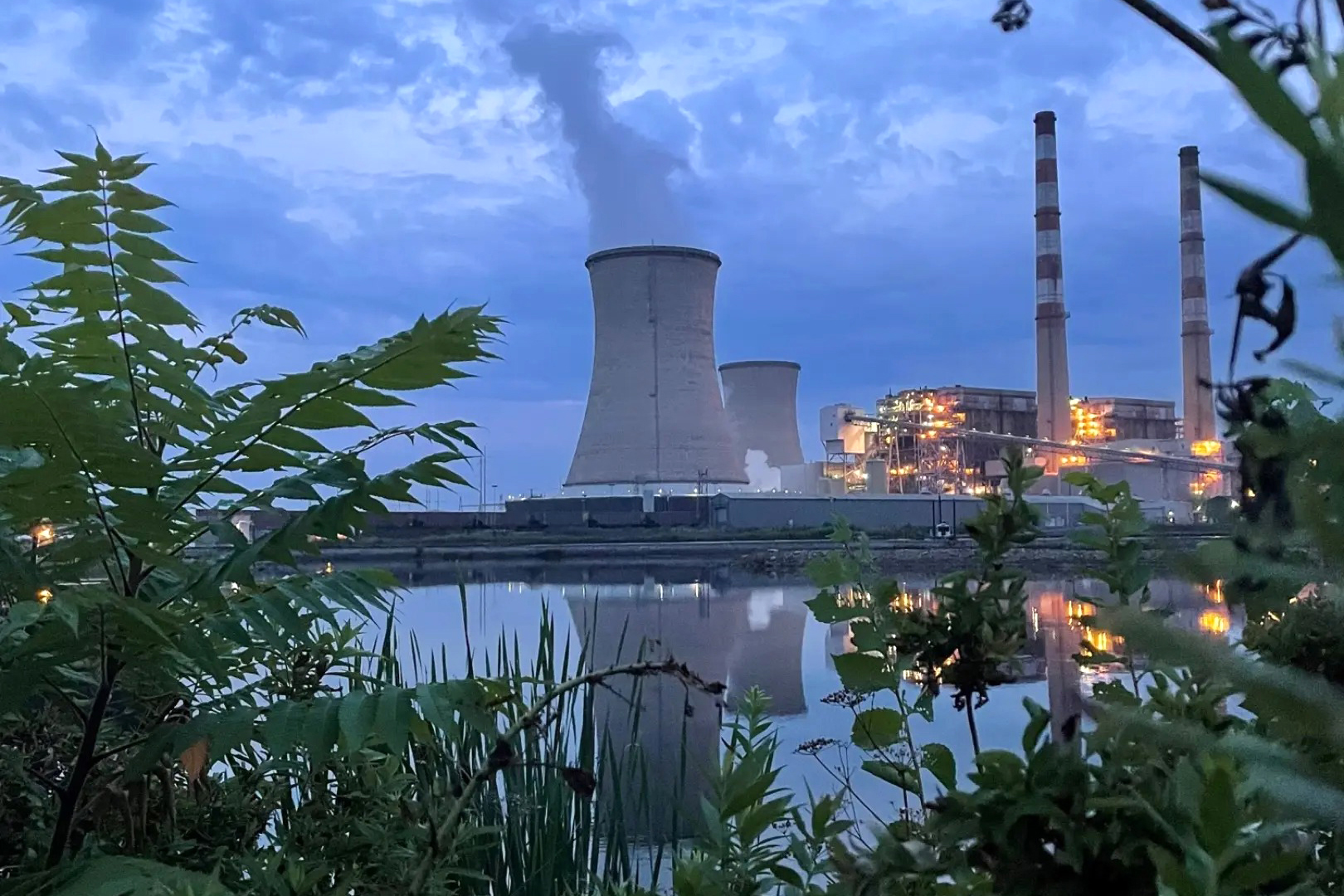A report released Monday shows that collective global climate action is still falling short of what’s needed to protect Earth’s livable climate. Still, progress has accelerated dramatically in the decade since the Paris Agreement, spurring policies such as investments in renewable energy and public transit that are speeding up the transition away from fossil fuels.
The 2015 Paris Agreement to limit global warming, reduce carbon dioxide emissions and increase resilience to climate extremes “was very important to make governments, and mainly the private sector, believe that sooner or later the transition to climate neutrality is really going to happen,” said Emilio La Rovere, a professor of energy planning at the Federal University of Rio de Janeiro, who has also worked on the major international climate reports from the Intergovernmental Panel on Climate Change.
For countries with emerging economies, such as Brazil, that was a signal to try and combine sustainable economic development with decarbonization, La Rovere said at a press conference for the report’s release. The challenges include political shifts that “jeopardize the continuity of climate policy,” he said.
“We also have the challenge ahead of the huge oil and gas resources that Brazil has found,” he added. “You know, Brazil has joined OPEC+, and there is a claim of taking a shortcut to prosperity by accelerating oil and gas production and exports.”
The new report from the Deep Decarbonization Pathways Initiative analyzes 21 countries, including the United States. The organization is an international research group established in 2013, with the Institute for Sustainable Development and International Relations and the Sustainable Development Solutions Network as lead institutions. It provides robust evidence on what deep decarbonization could look like, specifically how high-emissions countries can develop affordable policies to achieve the cuts needed by 2050. The Paris climate pact called for preventing global warming from exceeding 2 degrees Celsius above the 1850-1900 pre-industrial average, and preferably keep it below 1.5 degrees.
The section on the United States notes that the country’s “whipsawing” climate policy in the last 10 years “has created major obstacles for the type of rapid energy and economic transition needed to support national and global climate outcomes consistent with the goals of the Paris Agreement.”
Alicia Zhao, a co-author of the U.S. section of the report and a research manager with the Center for Global Sustainability at the University of Maryland’s School of Public Policy, said via email that recent federal climate policy rollbacks in the U.S. have “created a lot of uncertainty around the U.S.’s ability to deliver on its climate commitments under Paris.”
But she said states, cities and businesses remain key drivers of climate action, with “policy levers that can continue to drive emissions reductions in the near term.” A February analysis showed that targeted non-federal action could, in the best-case scenario, counteract most of the impacts of federal rollbacks and cut greenhouse gases between 54 and 62 percent by 2035.
The Deep Decarbonization Pathways Initiative report is an in-depth evaluation of the impact of the Paris Agreement on national climate policies a decade after its signing, said Henri Waisman, director of the DDP Initiative. He said there’s been some progress, but global greenhouse gas emissions are on the rise and the goal of limiting human-caused warming is slipping out of reach.
“These conclusions are widely accepted … but we also want to recognize that they tell only one part of the story,” he said. Those conclusions don’t explain why progress has been uneven, or what lessons can be drawn to boost action, he added.
Those questions are essential and at the core of the Paris Agreement, which was signed knowing countries would face a steep learning curve toward deep decarbonization. That learning process is built into the climate pact as “a core lever for progressively increasing ambition” to reduce emissions, Waisman said.
“The Paris Agreement was built on the decisions of individual countries, and the real test is how it has reshaped national climate action,” he said. A country-focused approach is critical “in these challenging times of fragile multilateralism,” he added.
The 21-country assessment shows that, while many governments have adopted aspirational policies, those remain “disconnected from concrete policy decisions” that would lead to implementation, he said. The analysis also showed that policymakers have not made use of key levers for short-term emissions cuts, including “dedicated actions on energy demand,” as well as specific measures to cut emissions from agriculture and forest management.
Tools to speed up climate action could include developing more institutional forums to resolve conflicts among interest groups.
“If we are to achieve the goals of Paris, the next decade must be about scaling up efforts, addressing social and industrial challenges and ensuring that ambition is consistently translated into effective action,” Waisman said.
About This Story
Perhaps you noticed: This story, like all the news we publish, is free to read. That’s because Inside Climate News is a 501c3 nonprofit organization. We do not charge a subscription fee, lock our news behind a paywall, or clutter our website with ads. We make our news on climate and the environment freely available to you and anyone who wants it.
That’s not all. We also share our news for free with scores of other media organizations around the country. Many of them can’t afford to do environmental journalism of their own. We’ve built bureaus from coast to coast to report local stories, collaborate with local newsrooms and co-publish articles so that this vital work is shared as widely as possible.
Two of us launched ICN in 2007. Six years later we earned a Pulitzer Prize for National Reporting, and now we run the oldest and largest dedicated climate newsroom in the nation. We tell the story in all its complexity. We hold polluters accountable. We expose environmental injustice. We debunk misinformation. We scrutinize solutions and inspire action.
Donations from readers like you fund every aspect of what we do. If you don’t already, will you support our ongoing work, our reporting on the biggest crisis facing our planet, and help us reach even more readers in more places?
Please take a moment to make a tax-deductible donation. Every one of them makes a difference.
Thank you,

















